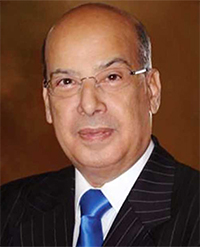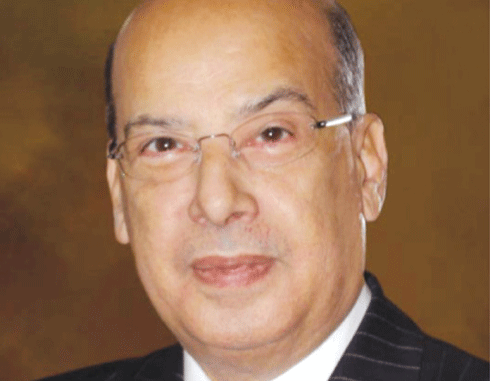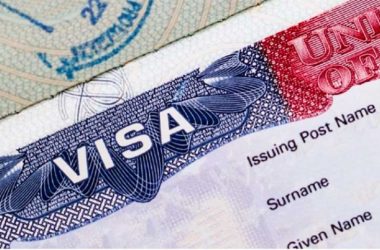
THE rights of Caribbean states in the international community are once again being threatened. This time, the spokesman is an adjunct professor at Johns Hopkins University, Benjamin N. Gedan, who wrote an opinion piece published by the Wall Street Journal on September 25 entitled: “For Venezuela’s Sake, Dismantle the Organization of American States. Tiny Caribbean states have outsize power, and many are in thrall to the Caracas regime”.
Ordinarily, Mr. Gedan’s view, to which he is fully entitled, would attract little attention or response. But the fact that it was published in The Wall Street Journal suggests a high level of organisation in service to a deliberate agenda, particularly as he is not a regular columnist of the Journal. It is who and what is behind the publication of Mr. Gedan’s opinion piece that is of greater concern.
Here are the basic points that he makes: The Organisation of American States (OAS) should be “disbanded” and replaced “with a body no longer dominated by small Caribbean countries” which he contemptuously dismisses as “the smallest and least productive members”. According to him, Caribbean countries “over the last two years” have “paralyzed the OAS”, which has “failed to address the crisis in Venezuela”.
In disparaging terms, he declares that “these countries, most of which are less populous than Staten Island, control 14 of the organization’s 34 votes”. And, in a very broad and sweeping claim, he asserts that Caribbean countries “have wielded their influence to thwart all attempts at defending human rights and democratic institutions”. Then he delivers his final solution for these countries: “OAS members should immediately dissolve the organization and replace it with a body that assigns Caribbean members a single, collective vote” which would be cast by the Caribbean Community Secretariat.”
Incidentally, while according to Mr. Gedan, “there are exceptions, such as the Bahamas, Barbados and Jamaica”, he did not hesitate to recommend that they should be lumped-in with all other Caribbean states in being restricted to “a single, collective vote”.
Further, he says, “The Caribbeans should be encouraged not to boycott the new organization”. In other words, Caribbean countries should cut their own throats or be “encouraged” (whatever he means by that word) to do so.
In his condemnation of Caribbean countries for what he says are their thwarting of human rights and democratic institutions, he neglects to inform his audience that the Caribbean as a whole has an enviable record of upholding democratic institutions and human rights and is without parallel in the Hemisphere for religious and racial tolerance, freedom of expression and political liberty.
Interestingly, in his zealous avowal that Caribbean countries have “held the OAS hostage” and “obstructed” it from measures addressing the crisis in Venezuela, he makes not a single passing mention of Bolivia, Ecuador, El Salvador, Dominican Republic and Nicaragua, which have consistently voted against any proposed resolutions or declarations aimed at Venezuela, and which have been in the forefront of resisting intervention in its internal affairs. One is left to wonder what differentiates the Caribbean from these countries in Mr. Gedan’s mind.
Mr. Gedan also infers that the Caribbean is for sale. He boldly states that “Caribbean governments, in return for Venezuelan assistance, have held the OAS hostage”. Curiously, he sees no contradiction in stating that “no amount of American aid balanced the scales”. But, if the Caribbean is indeed for sale, why would the Venezuelan bolivar possess greater allure than the U.S. dollar?
Not for the first time, the principled position of Caribbean countries in relation to the internal affairs of Venezuela has been cast in insulting terms, not applied to others. The allegation of bribery comes easily to the accusers who readily brand their targets, ascribe unsavoury reasons to their actions and pillory them in the media. Caribbean countries have lived with these calumnies from the beginning of their experience as sovereign states. At one time or another, but repeatedly, Caribbean countries have been disparaged because they dare to take positions that are disliked by elites in powerful countries.
There are a few things that need to be stated in response to Mr. Gedan. It is not the Caribbean that deprived the OAS of a constructive role in Venezuela. The region took no sides in the internal political division in Venezuela. At all times, the region promoted dialogue by the Venezuelan protagonists, recognising that no sustainable solution can be imposed from outside and that encouraging one side or the other is destined to prolong conflict and end in failure.
Had the OAS, as an organisation representing the consensus of its member states, through its Permanent Council, taken a collective stance of neutrality with regard to the Venezuelan protagonists; criticised the behaviour of all political players; called for an end to violence; and held itself ready to offer its good offices to help Venezuelans resolve their internal issues, it would have fulfilled the stated objective of its Charter. Instead, some states sought to bend the rules of the Organisation to suit their bilateral purposes and “the crusading Secretary-General”, as Mr. Gedan described him, deprived himself and the OAS of the role of honest broker.
The Caribbean upheld the rules of both the OAS and the Inter-American Democratic Charters, and they did so firmly, because small and powerless countries in the international system depend on the preservation of rules for their own protection. Bending or discarding those rules in relation to any country weakens and erodes them, opening small countries to abuse for whatever reason, including holding a different view.
That is not to say that there is not strong debate within the Caribbean of how the Venezuelan matter should be handled; there is. But that debate will certainly not “encourage” (to use Mr. Gedan’s euphemism) Caribbean countries to accept the notion that our sovereign states should be relegated to “a single, collective vote”. He may regard Caribbean countries as “the least productive” of the OAS members and, in doing so, show utter disregard and intolerance for dissenting opinion (much like dictators), but he can be assured that the Caribbean will stand up for its rights in the international community.
As a footnote to all this, Mr. Gedan stated in his opinion piece that “the democratic charter has become an empty threat”. It was a revealing characterization of the Charter as “a threat”. It was never the Charter’s intention to be used to threaten member states; the purpose of the Charter, as stated in its very first principle, “is to promote and consolidate representative democracy, with due respect for the principle of non-intervention”.
All Caribbean countries, without exception, are committed to upholding the spirit and letter of the Charter. What Caribbean countries will not support is the twisting of the rules of the Charter for intervention in any member state of the OAS, large or small.
We will also not shut up or be shut out.
Responses and previous commentaries: www.sirronaldsanders.com
(The writer is Antigua and Barbuda’s Ambassador to the U.S. and the OAS. He is also a Senior Fellow at the Institute of Commonwealth Studies at the University of London and Massey College in the University of Toronto. The views expressed are entirely his own).















” Abiding /upholding THE RULES”-therein is enamored the strength of small states.
Whgen King George BROKE the rules of parliamentary REPRESENTATION- the greatest modern EMPIRE was birthed on the issue of HONORING THE RIGHT TO POLITICAL REPRESENTATION.
gedan is no GIDEON- more like the ANTI CHRIST when he proposes to subvert the rights of individual Caribbean states to full political political representation. He wishes to return us to pre Magna Carta subjugation.
gedan is one of the giddy swine from ANIMAL FARM, who has just learned to guzzle like Johnny Walker.
Lets tar and feather this mud peddler, and parade it around the Savannah Oval in Port Of Spain T&T, amen.
Sir, I thank you for sharing your God gifted wisdom and splendid human understanding.